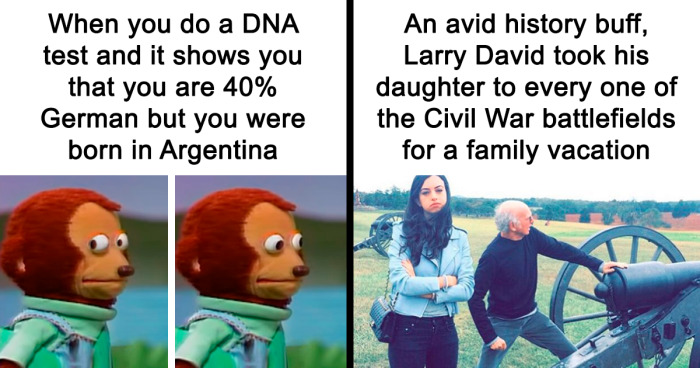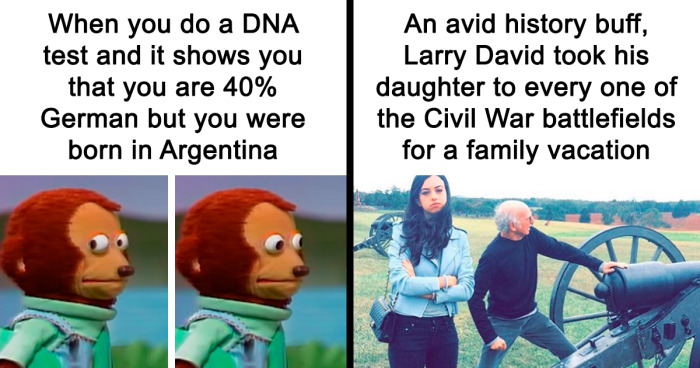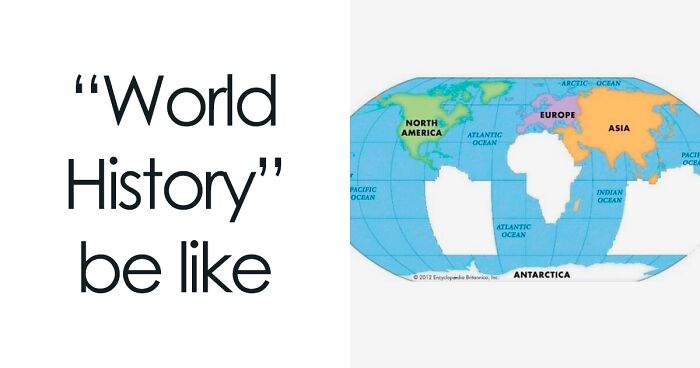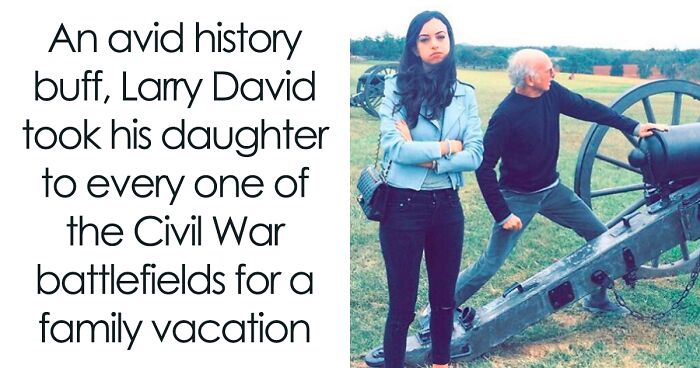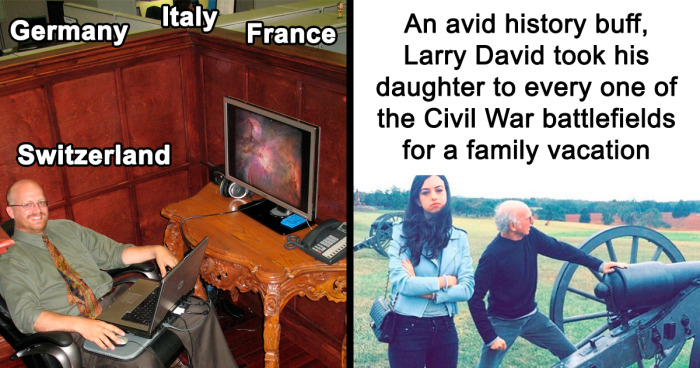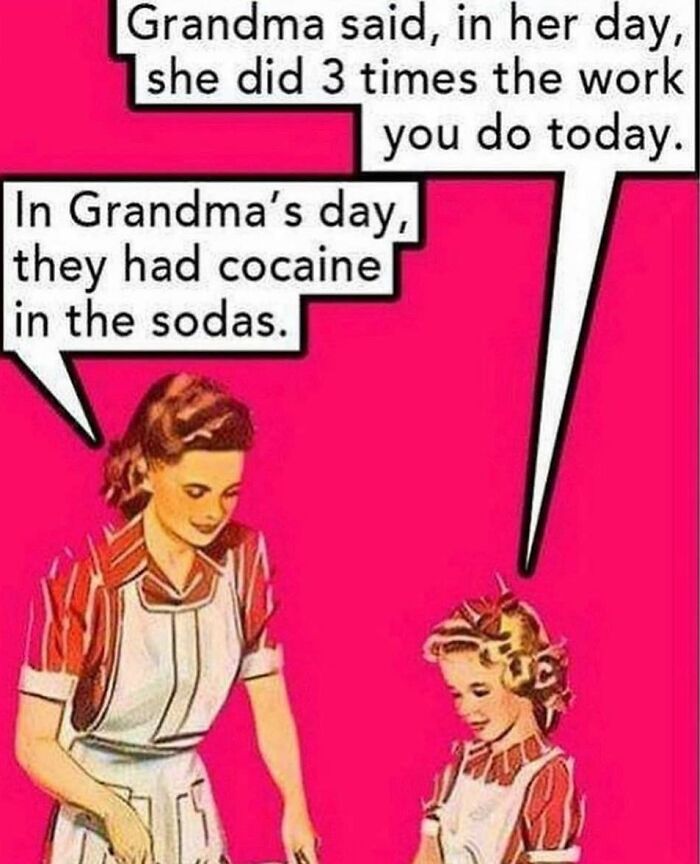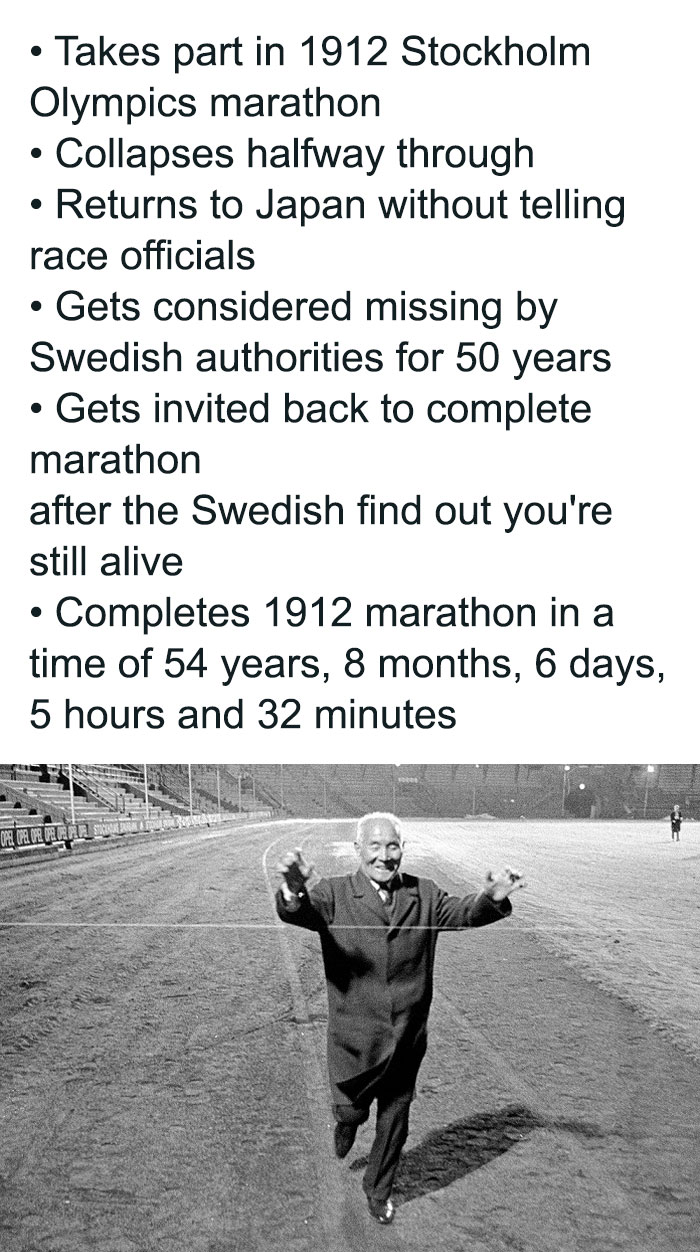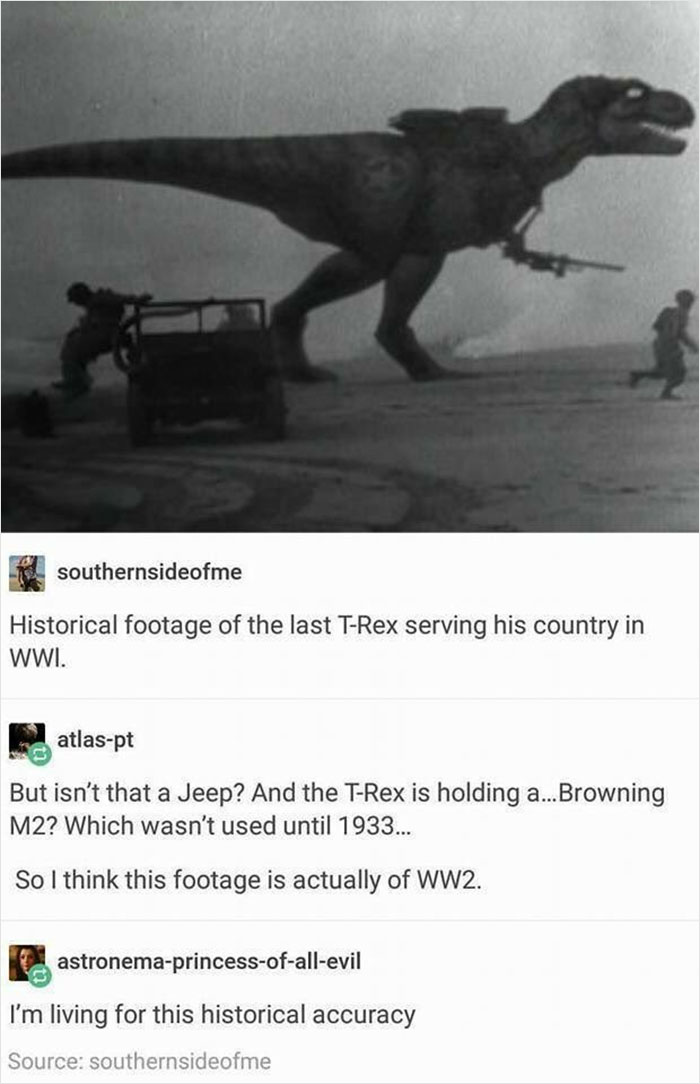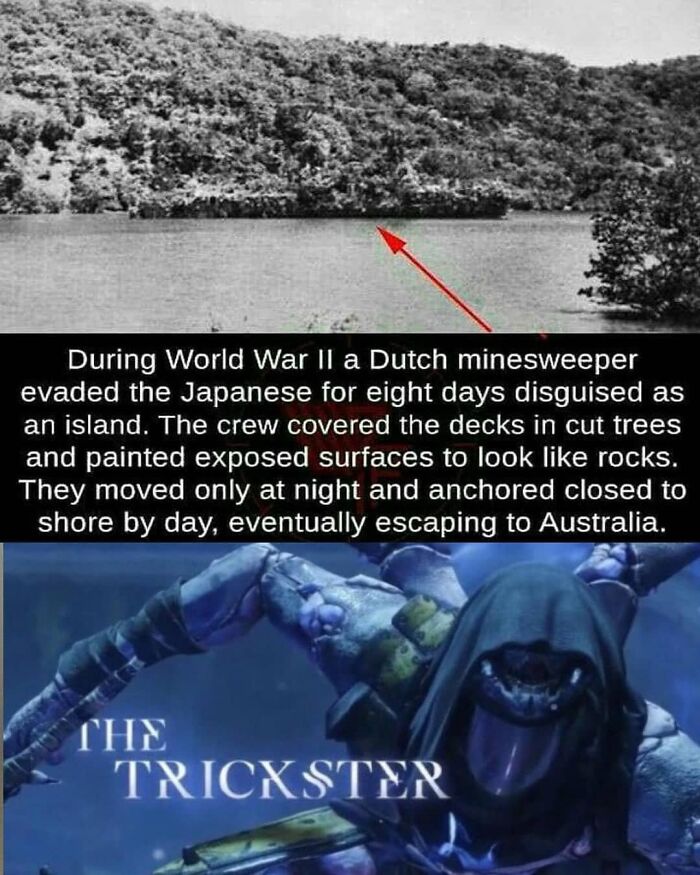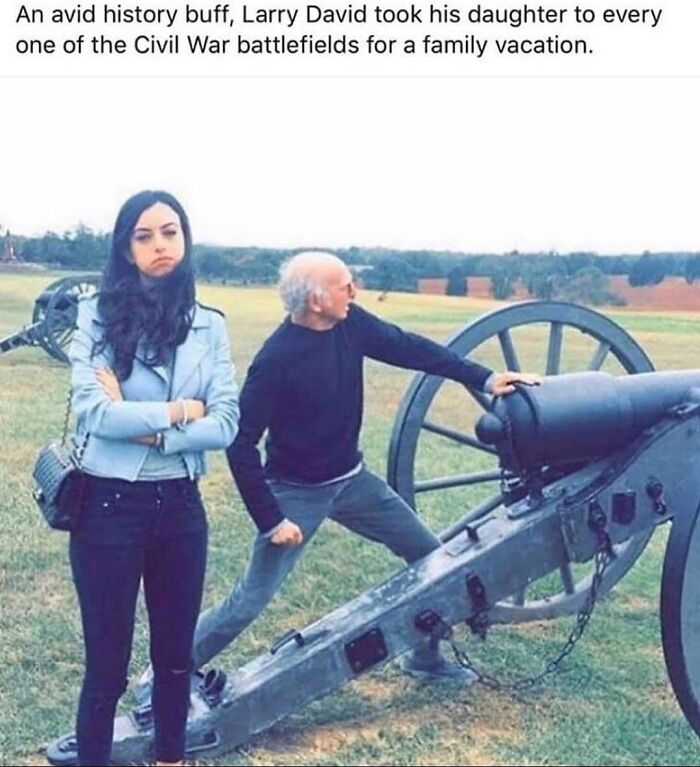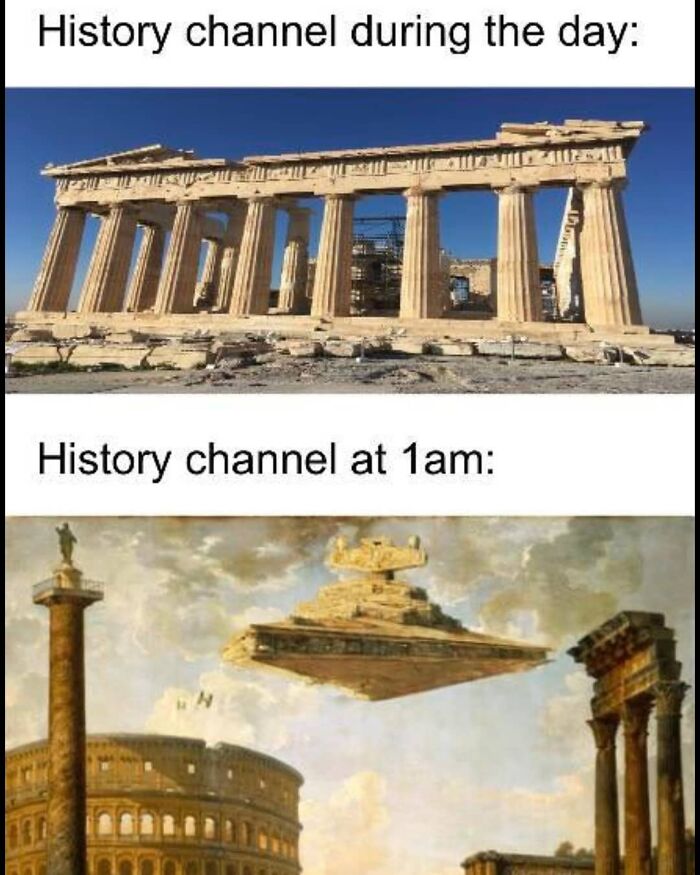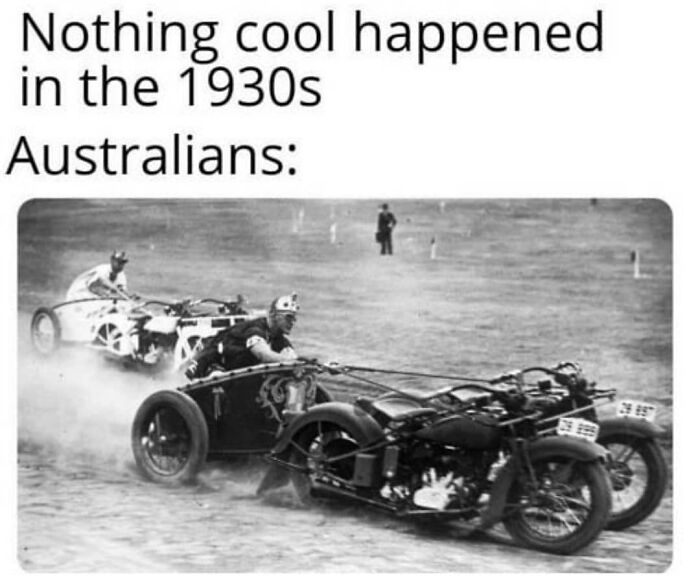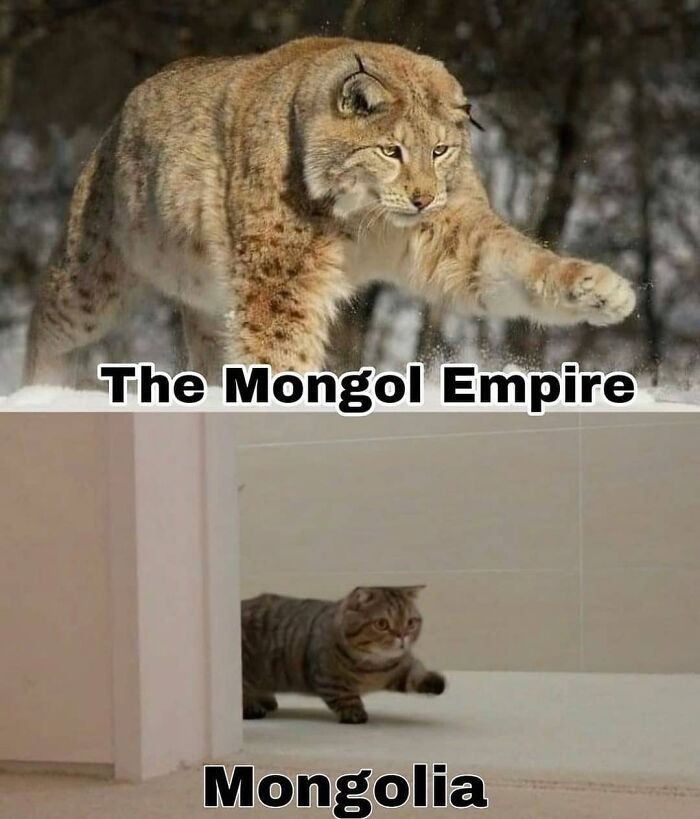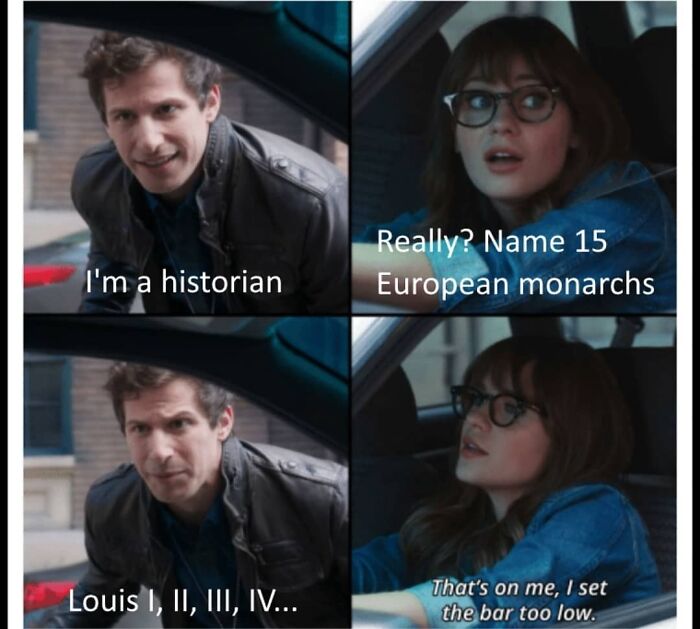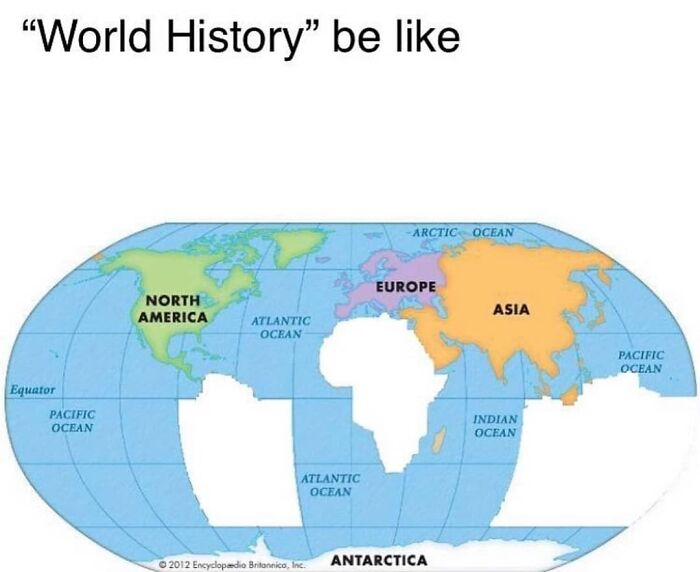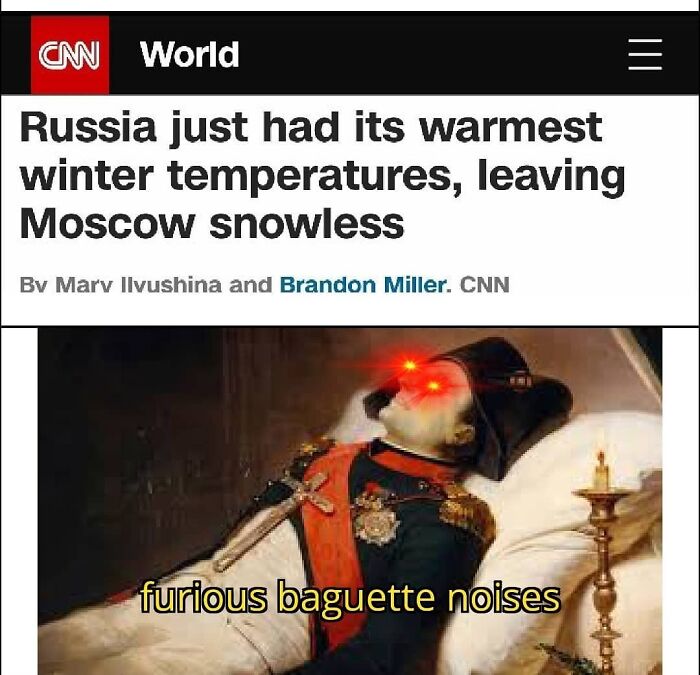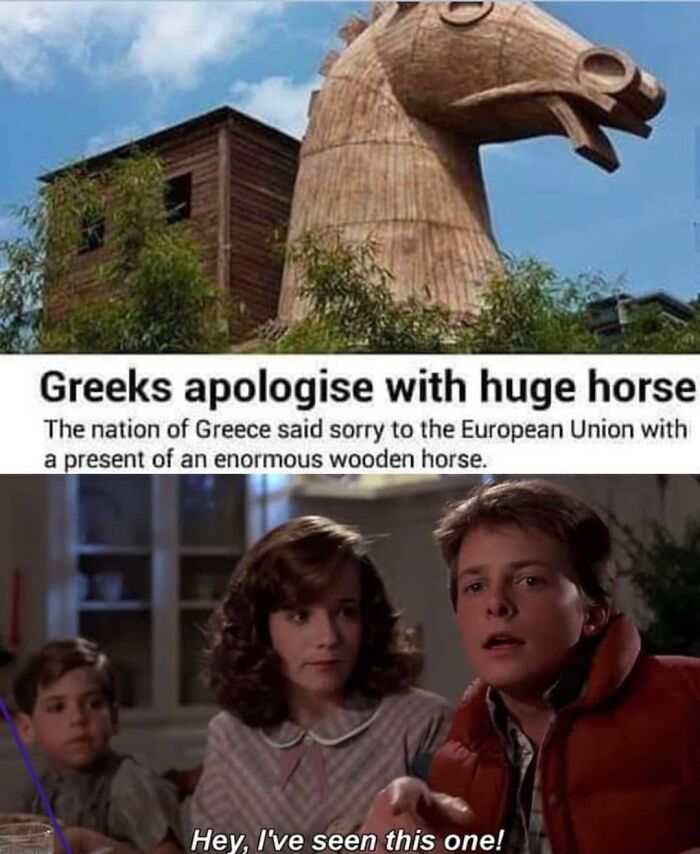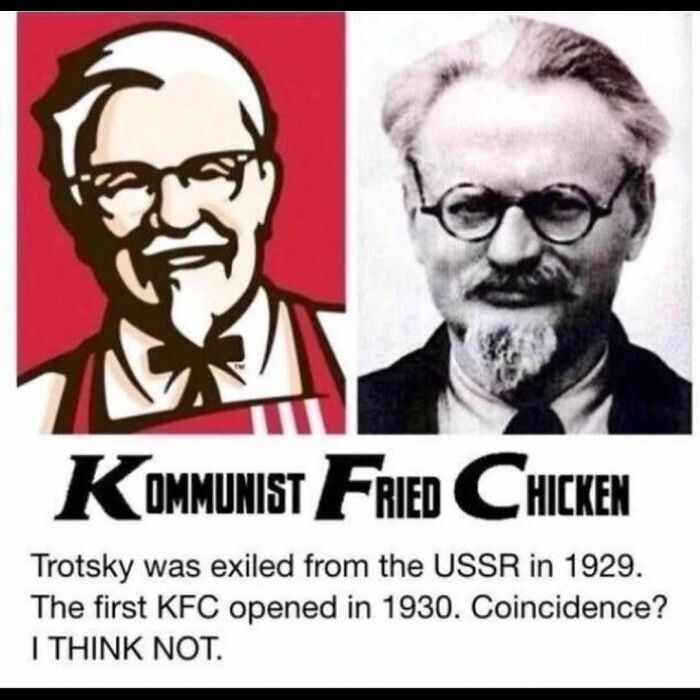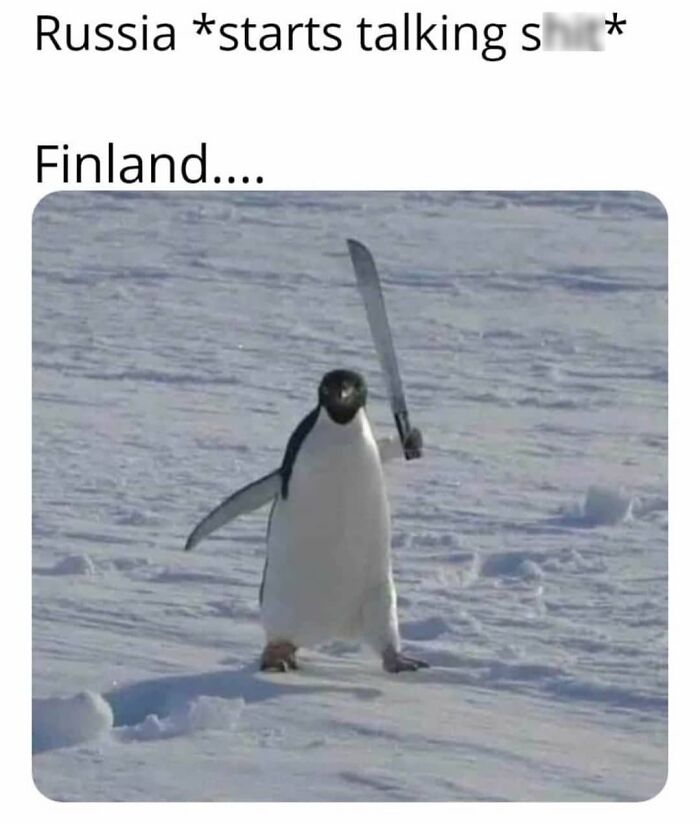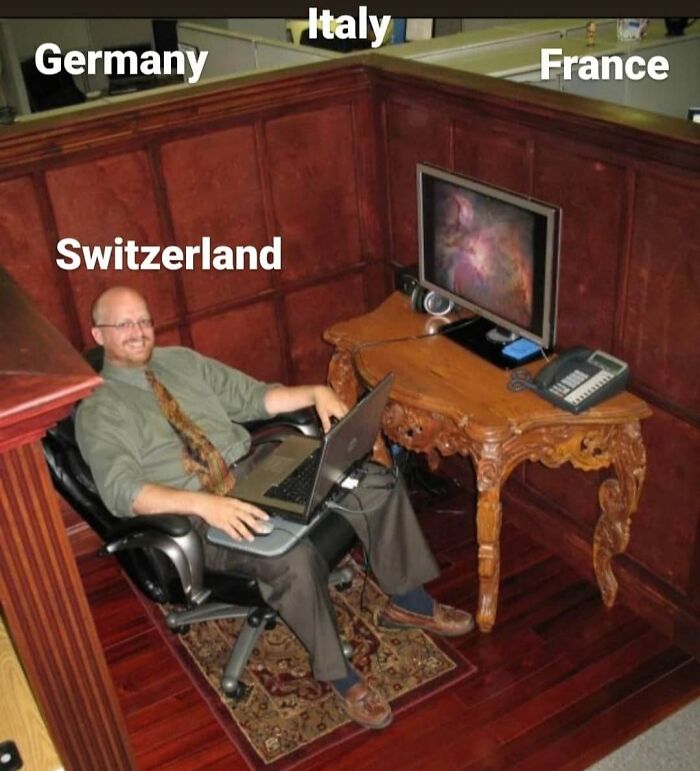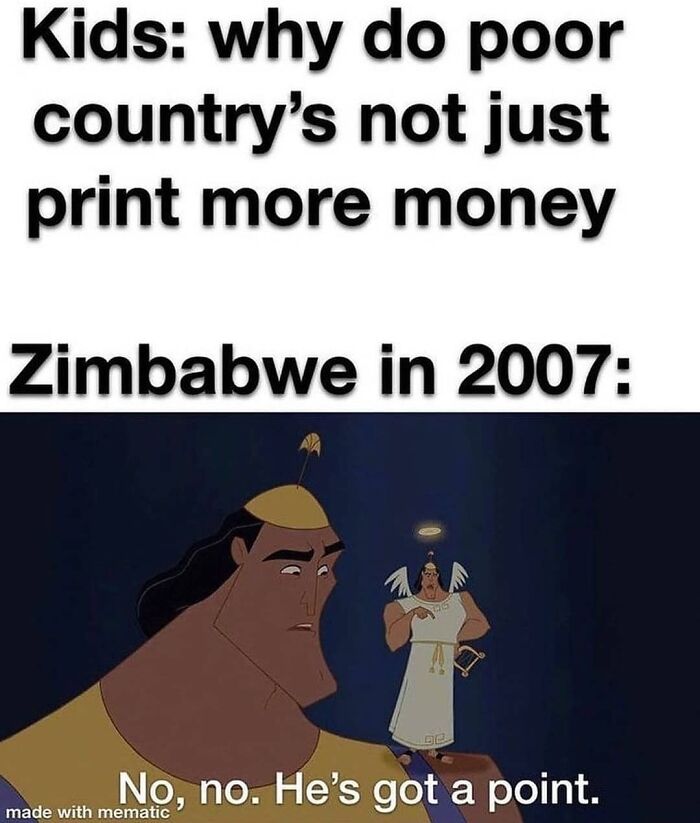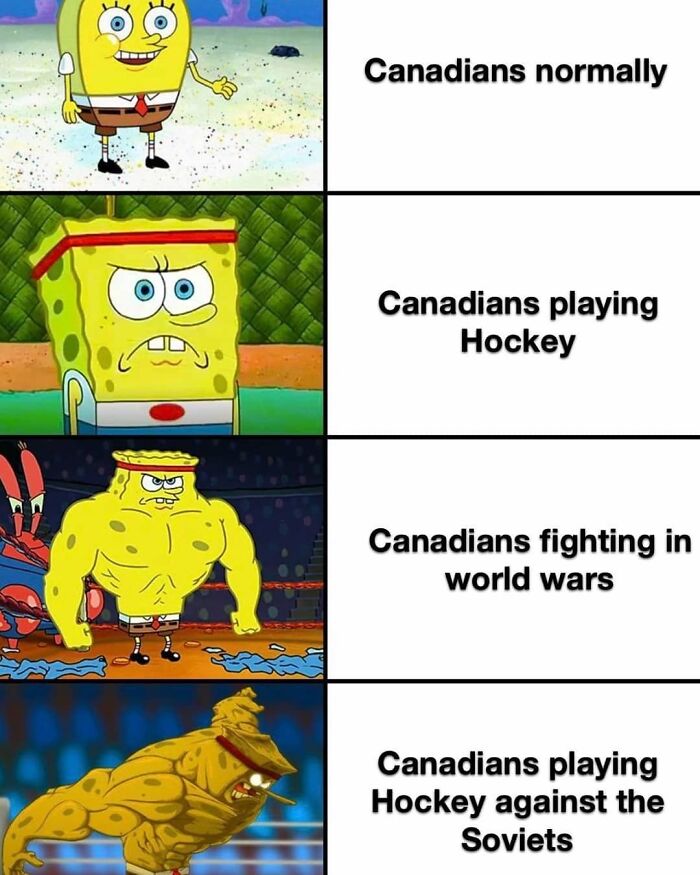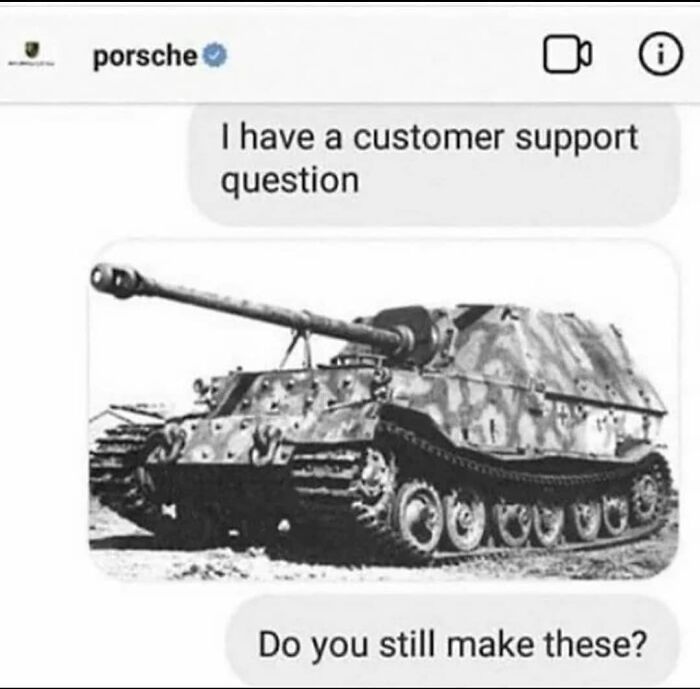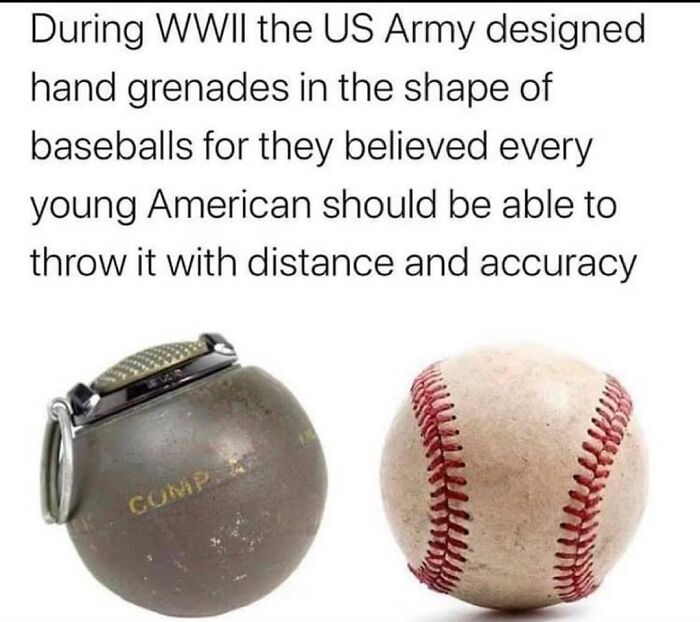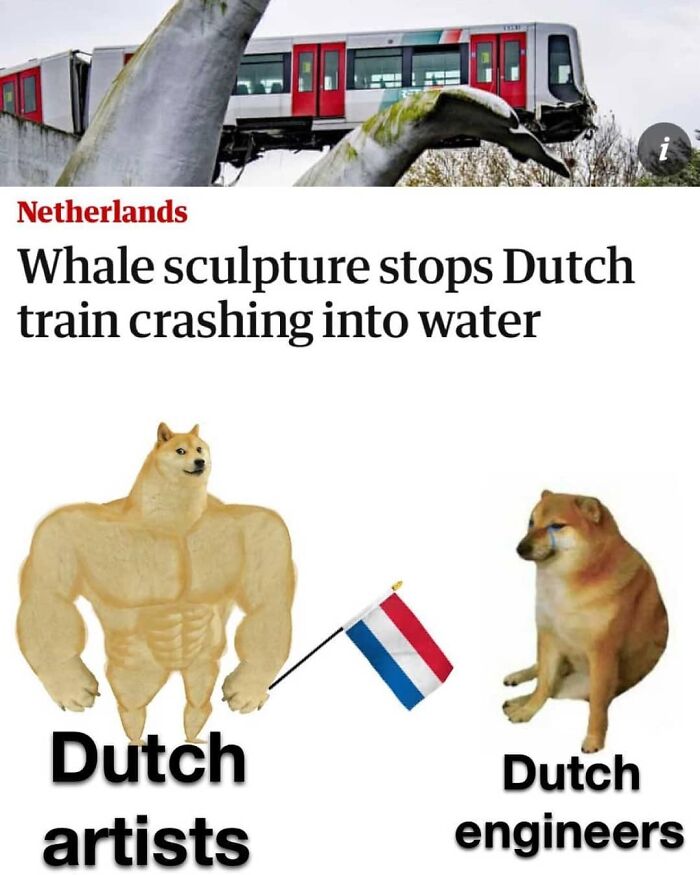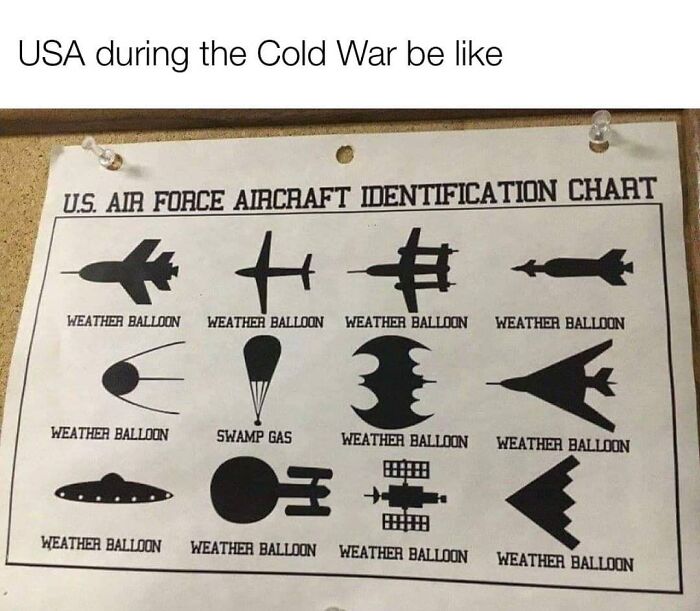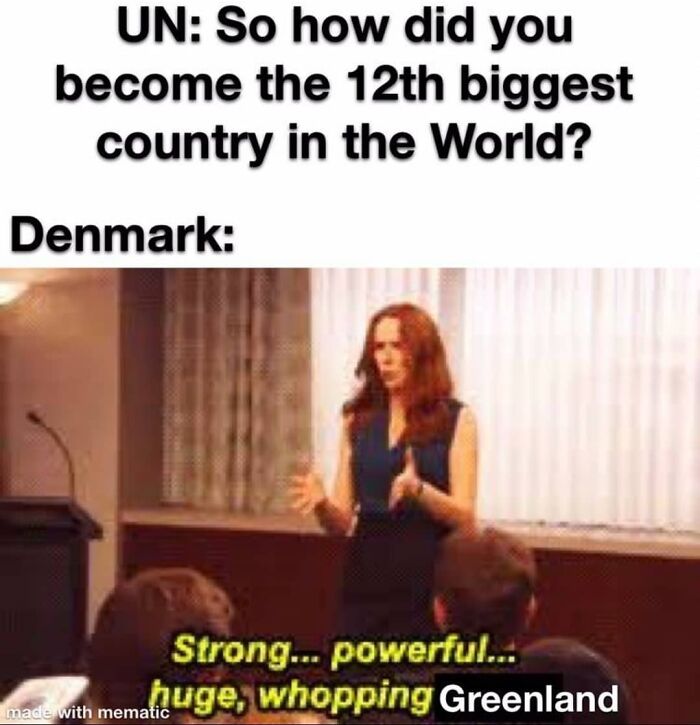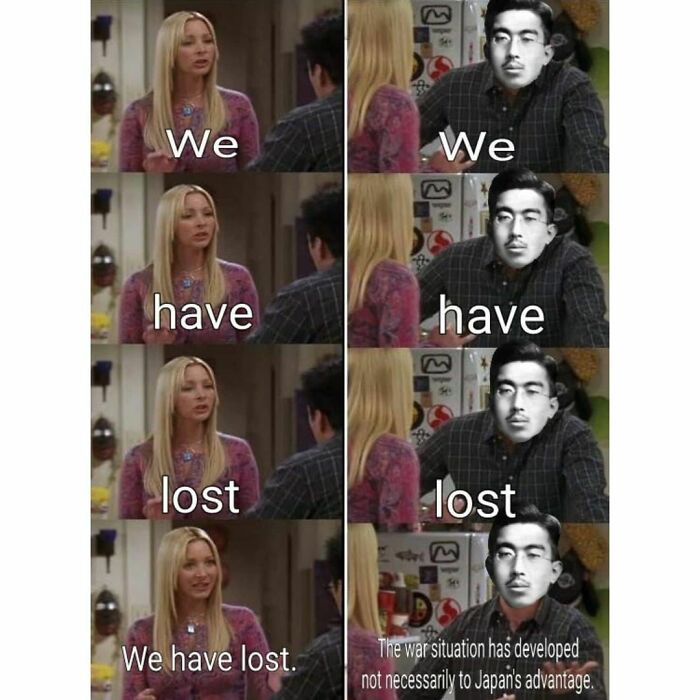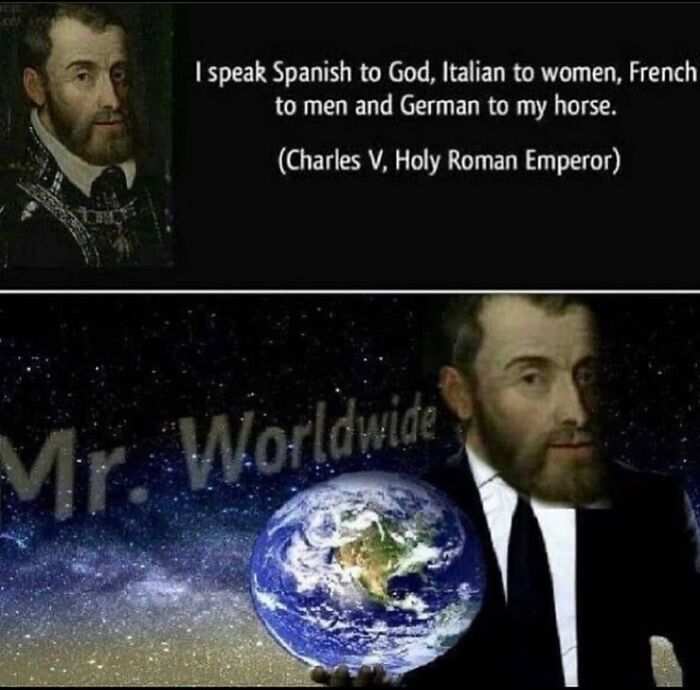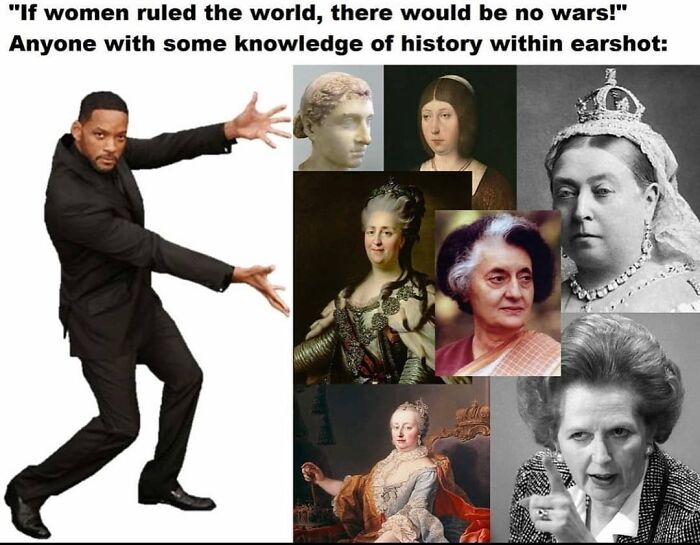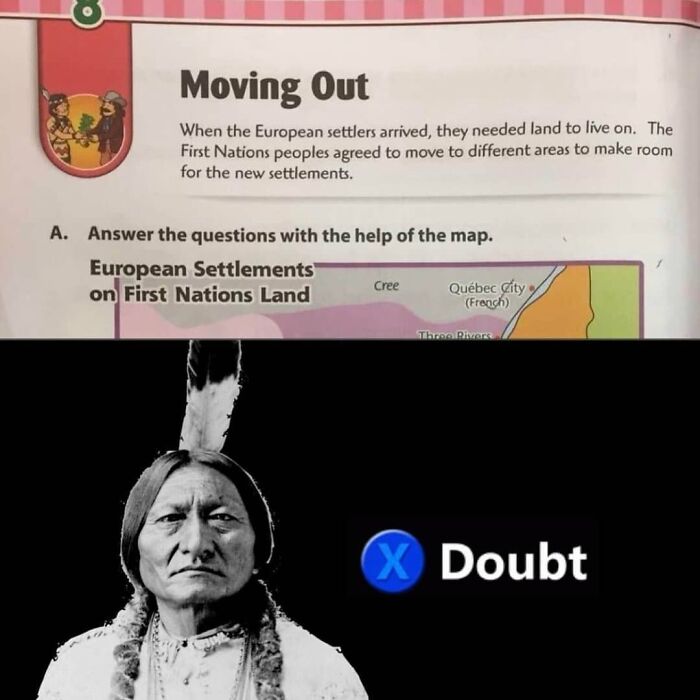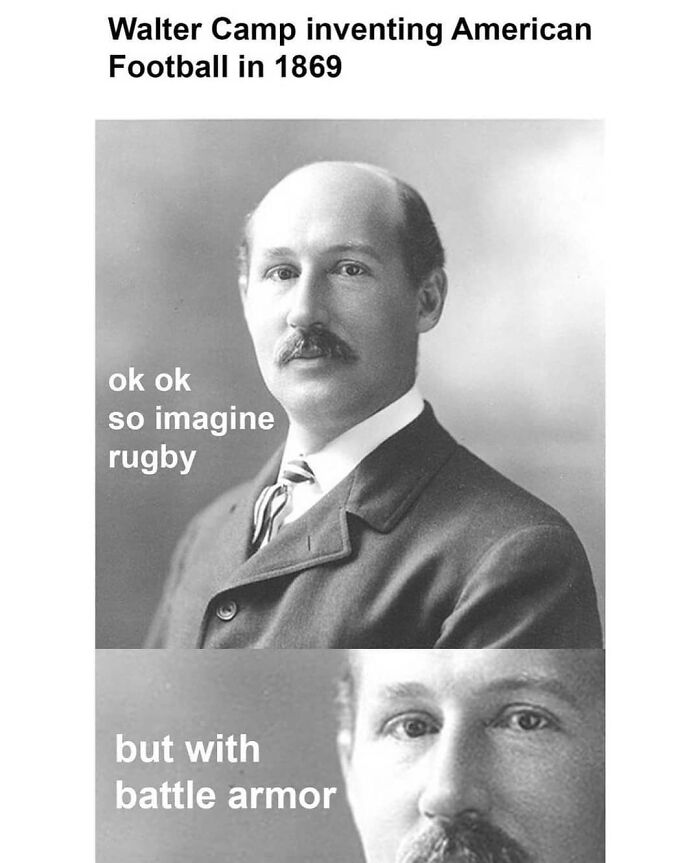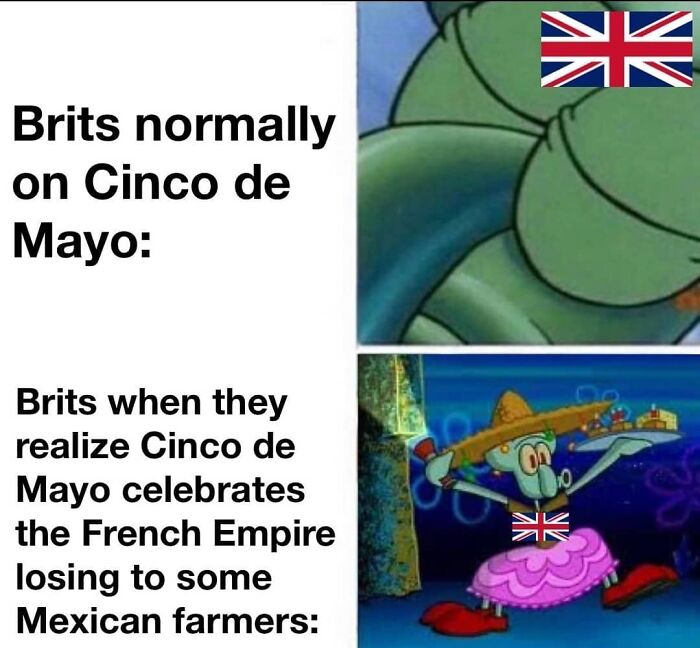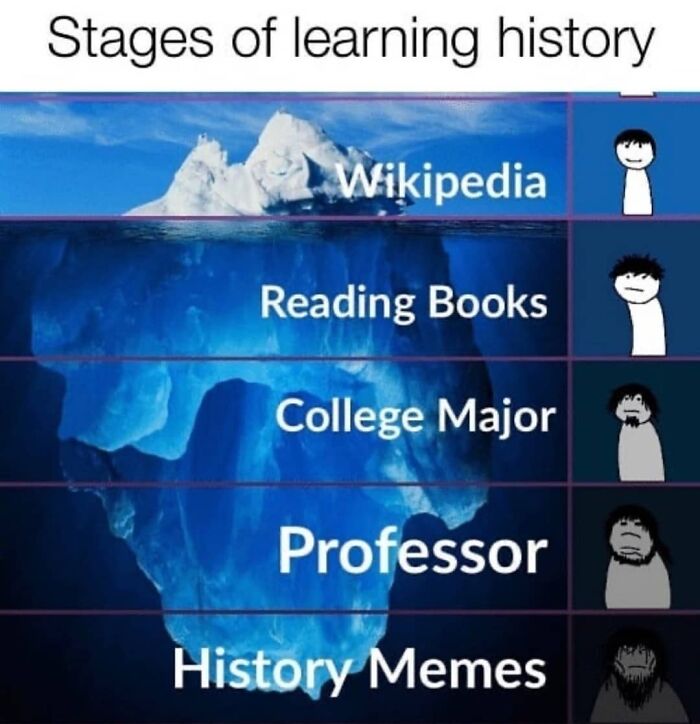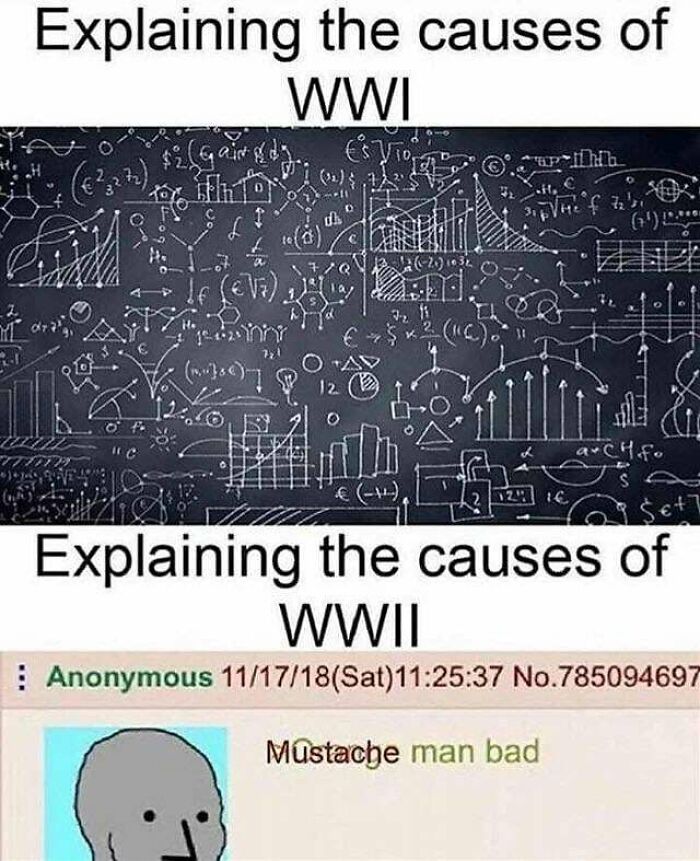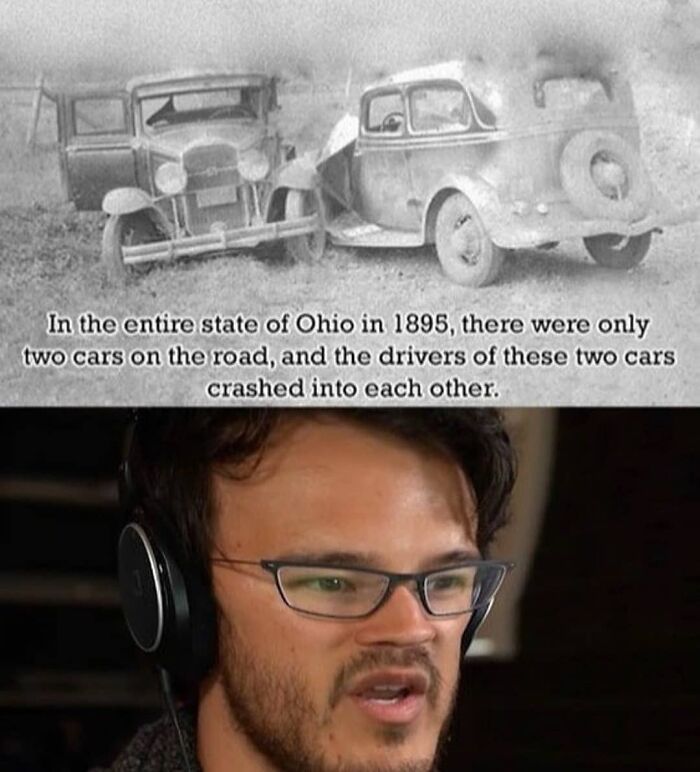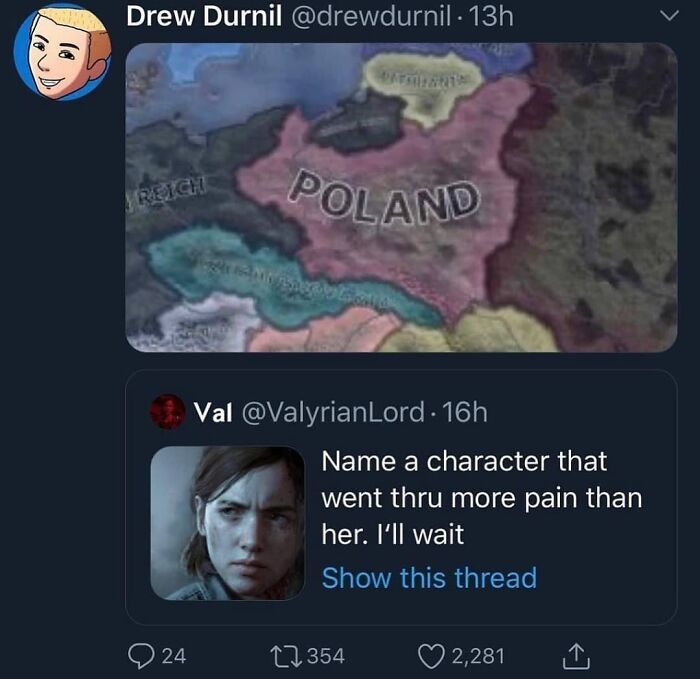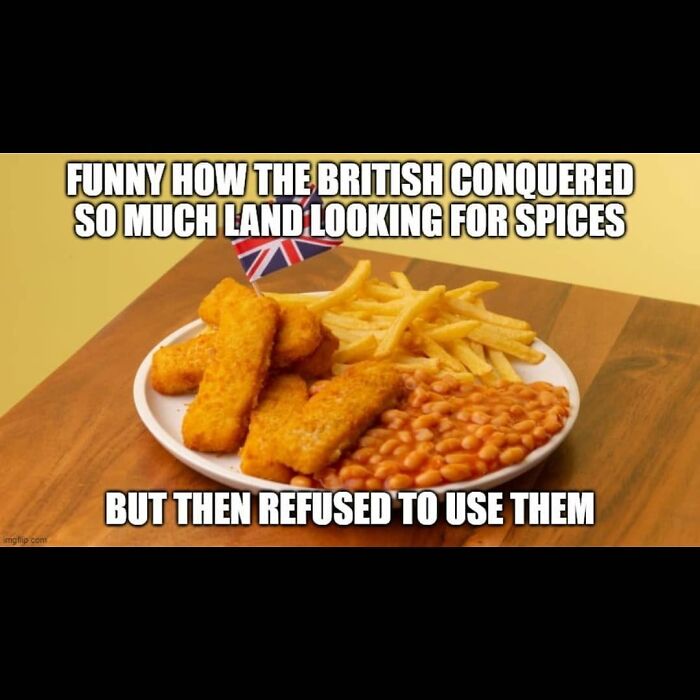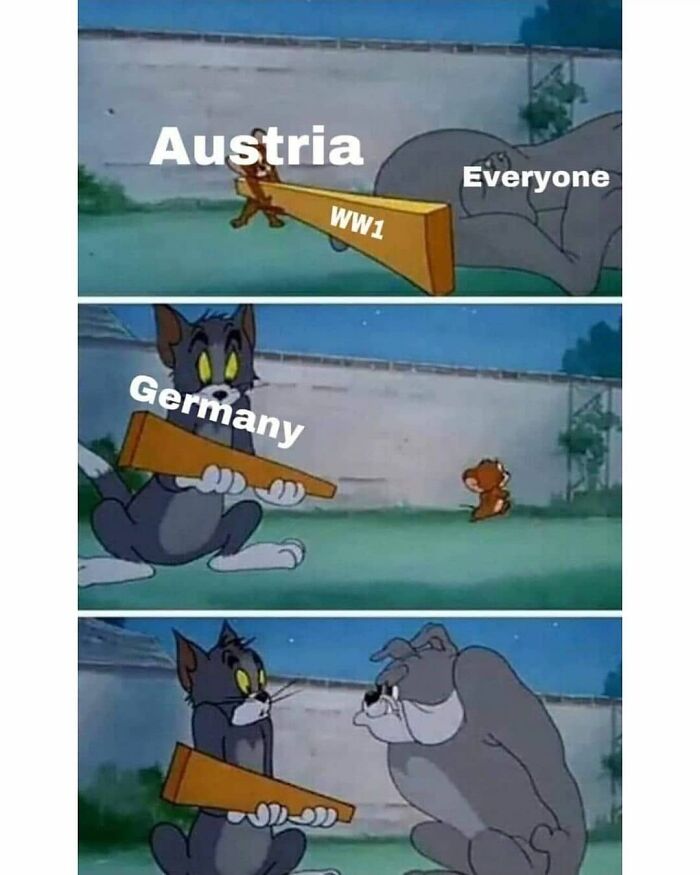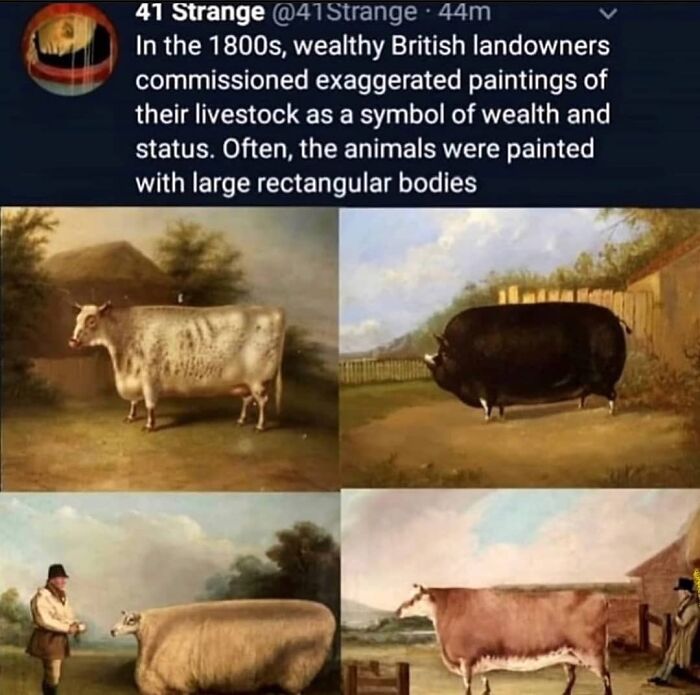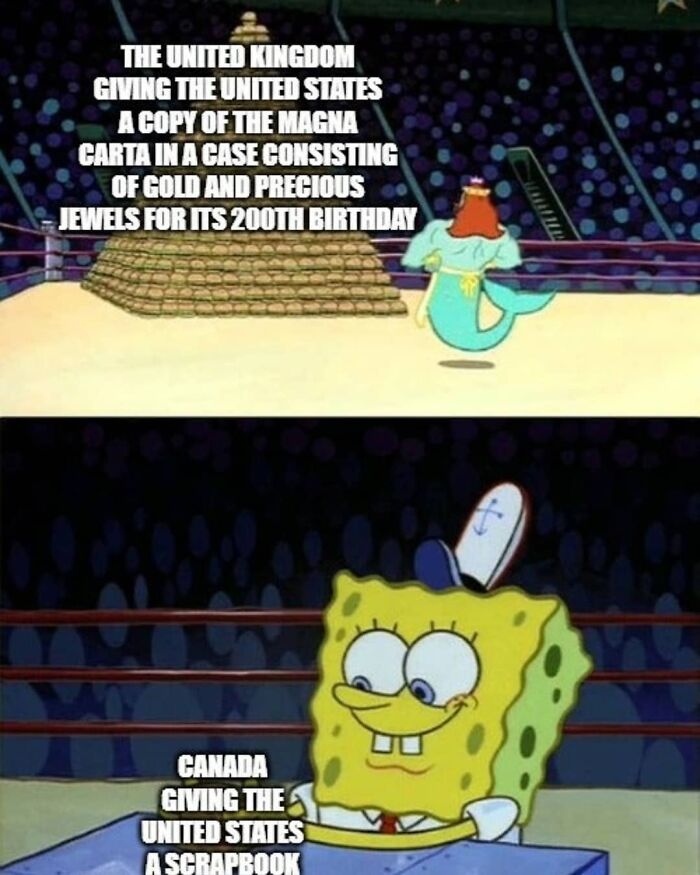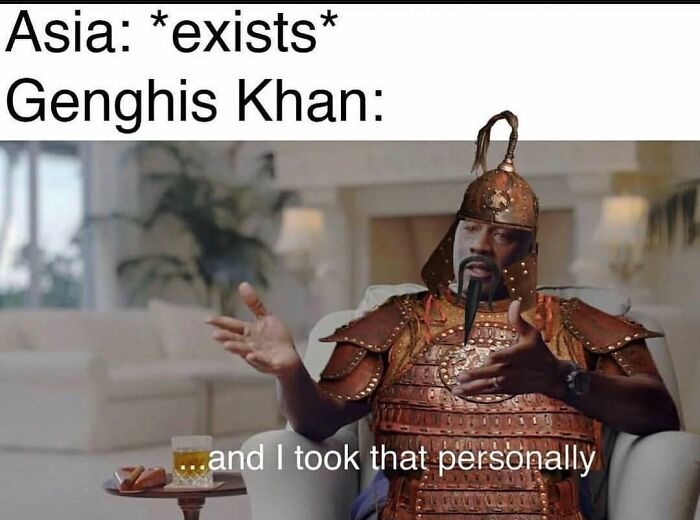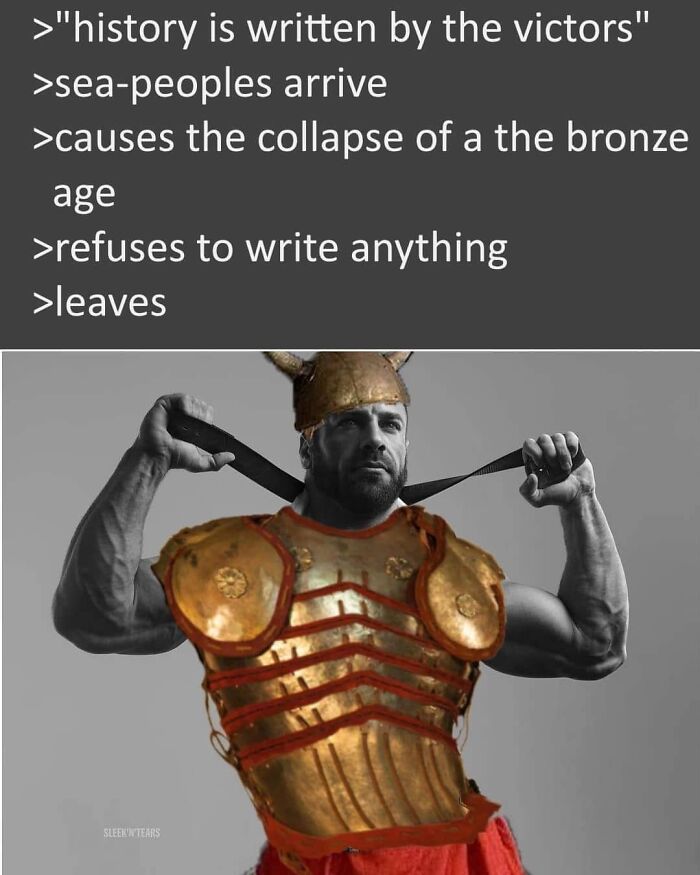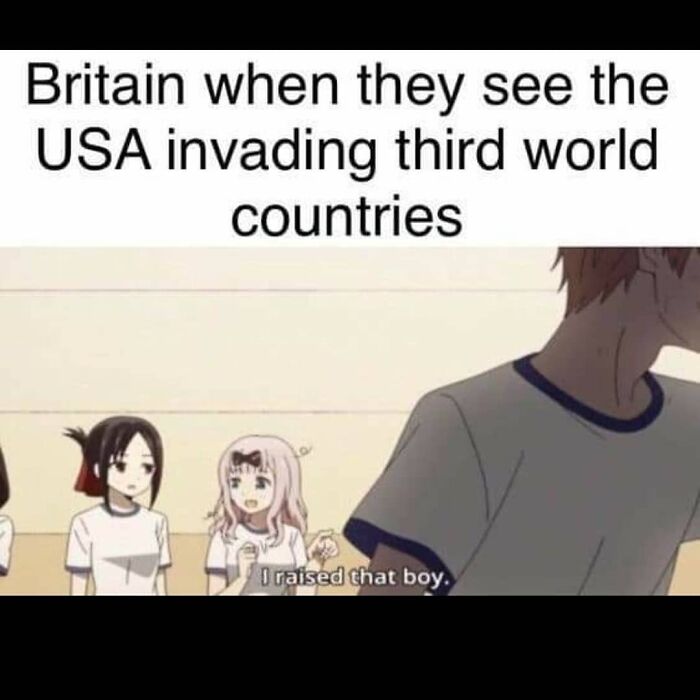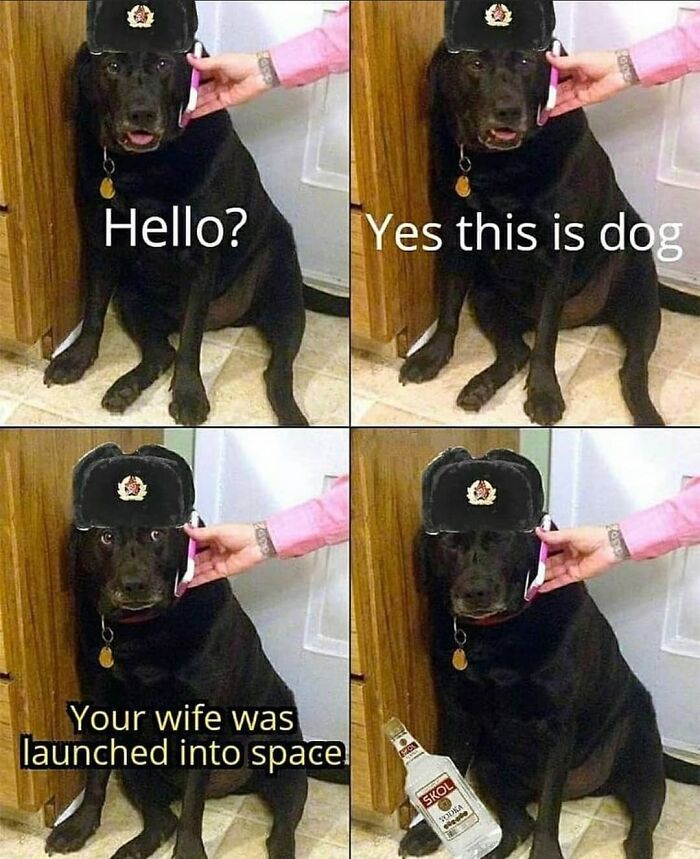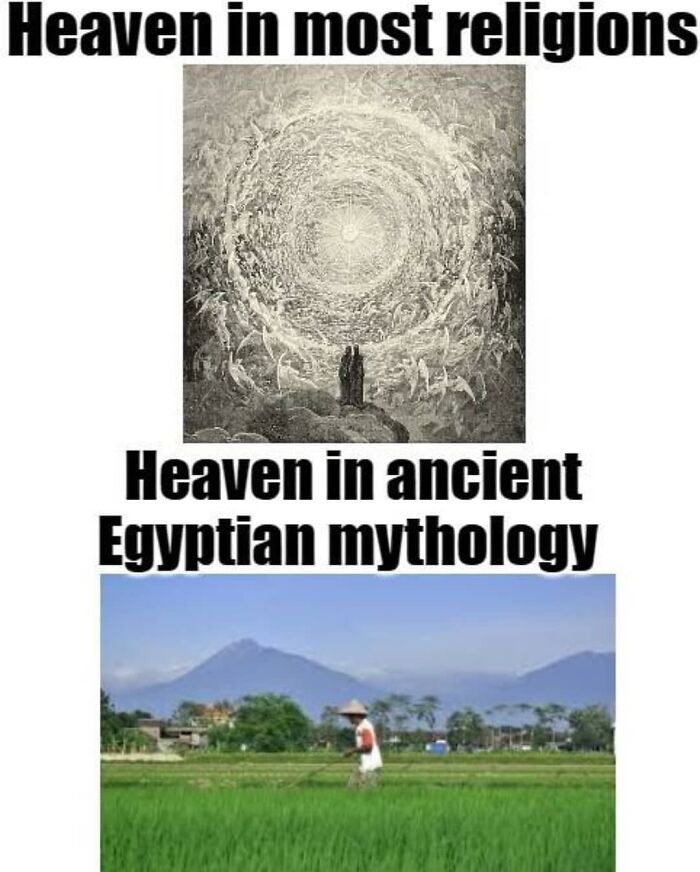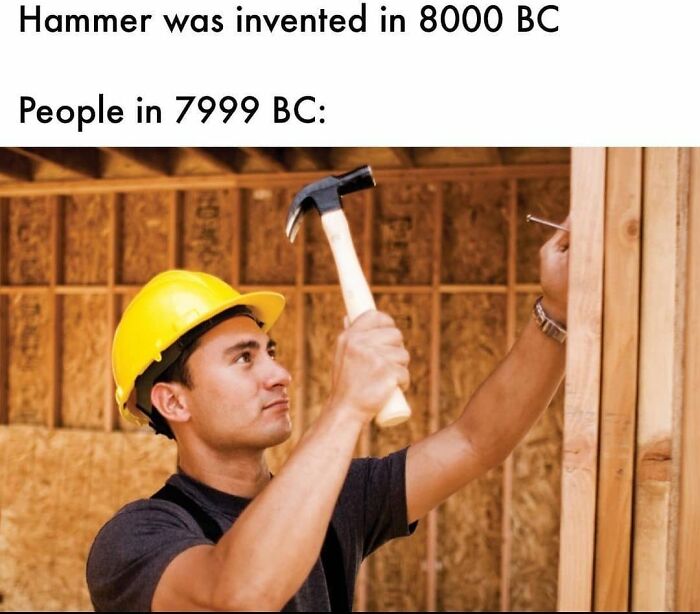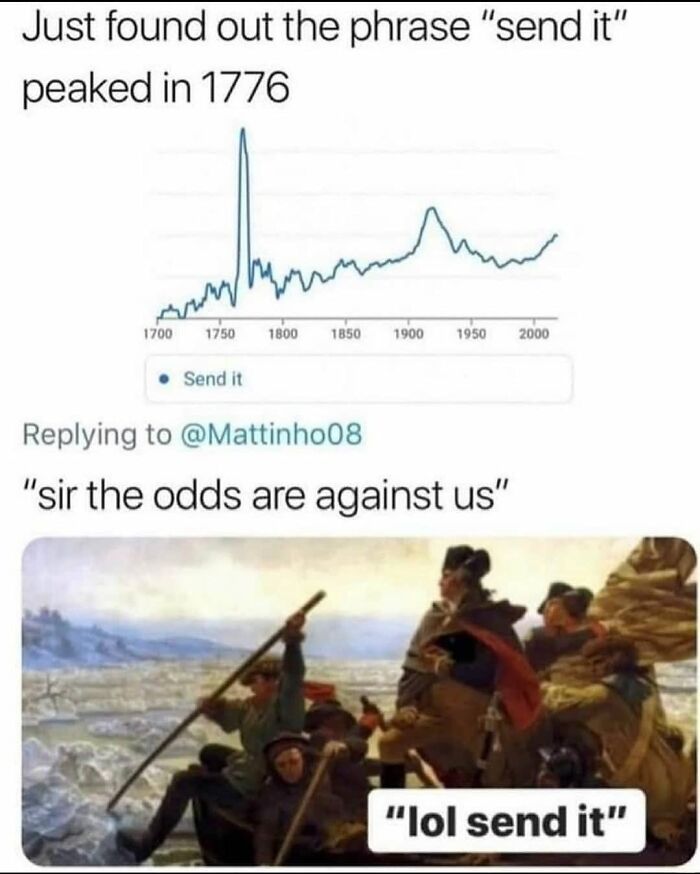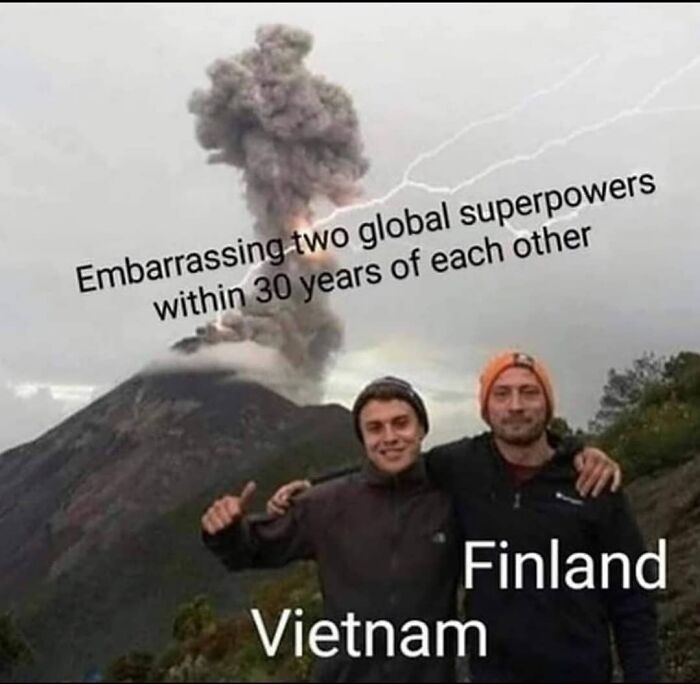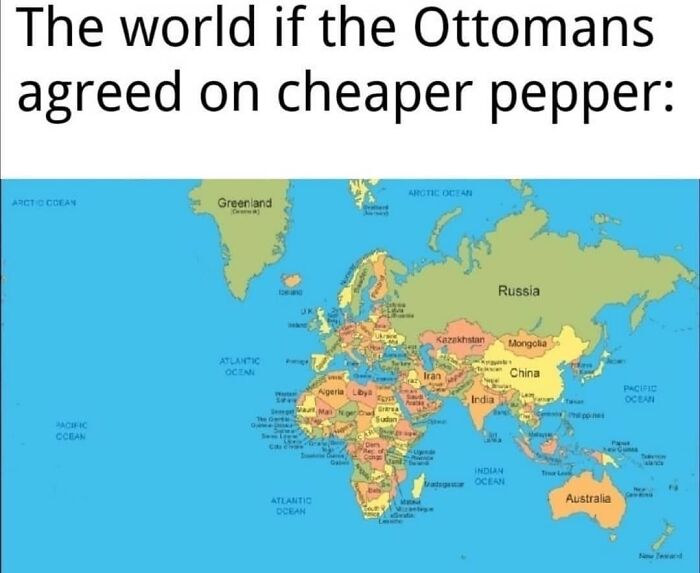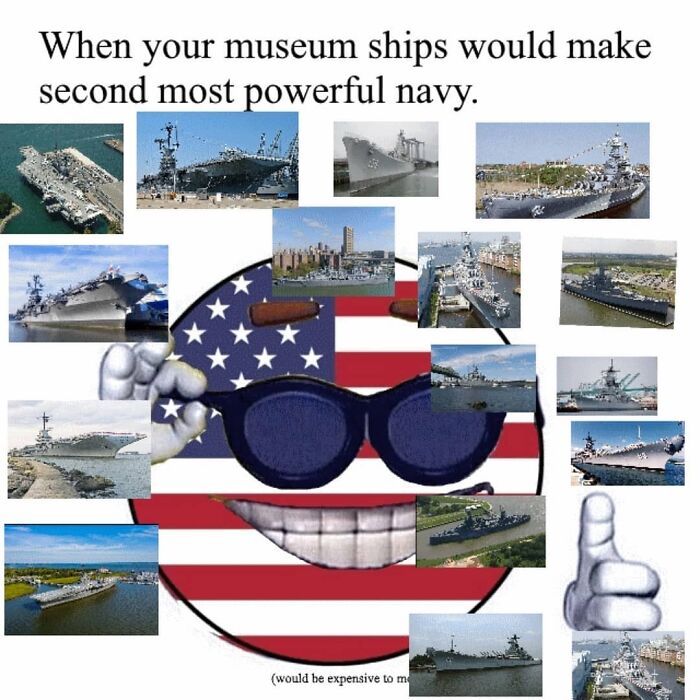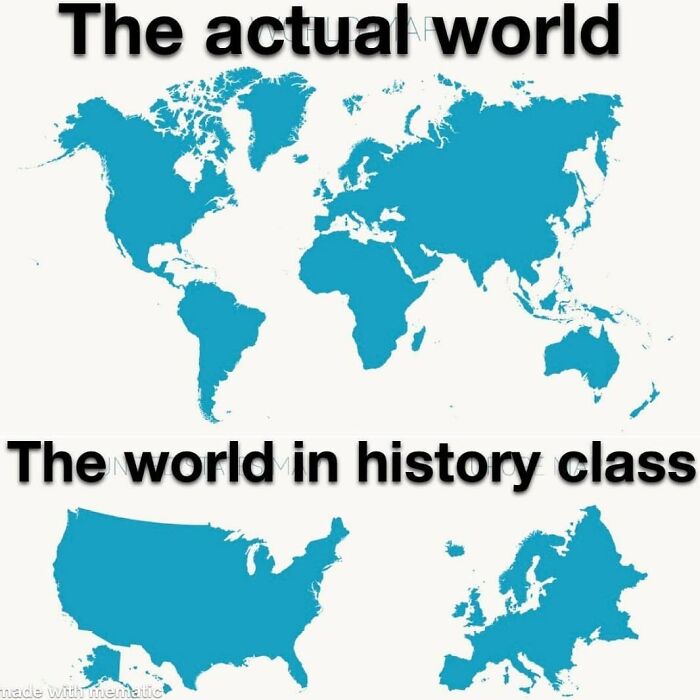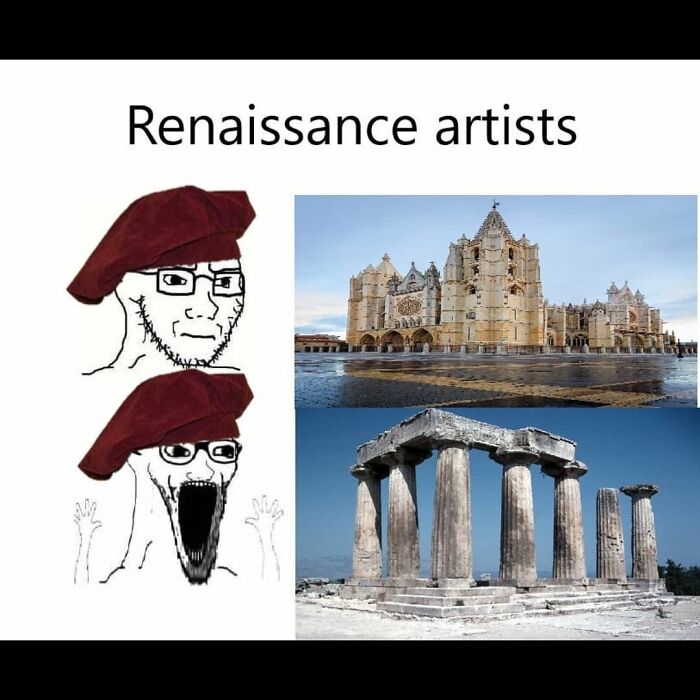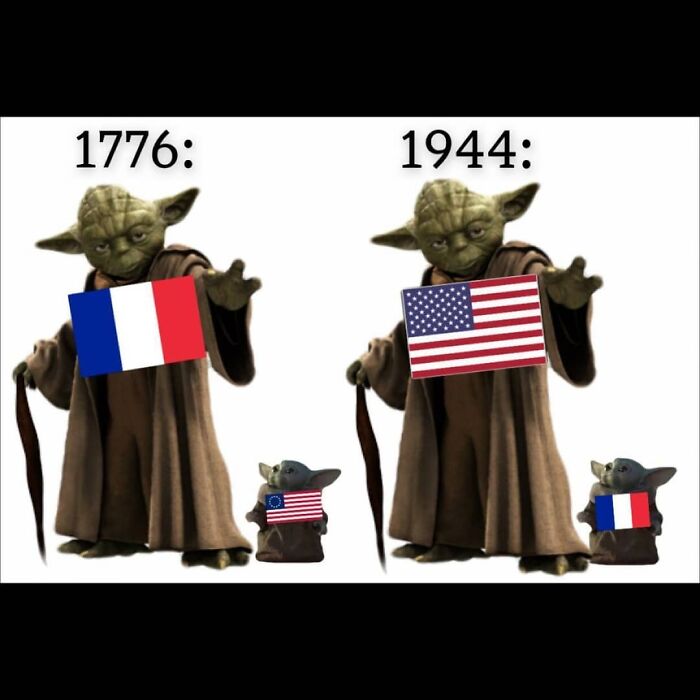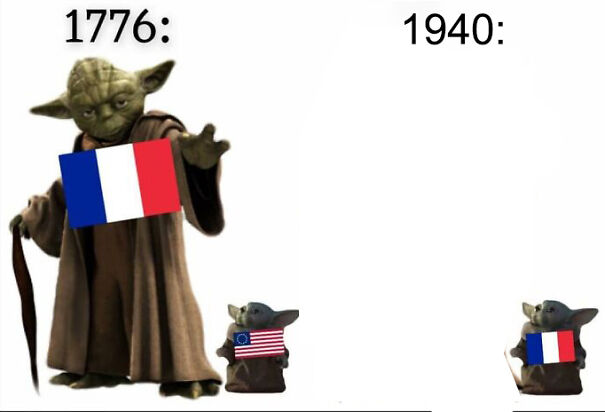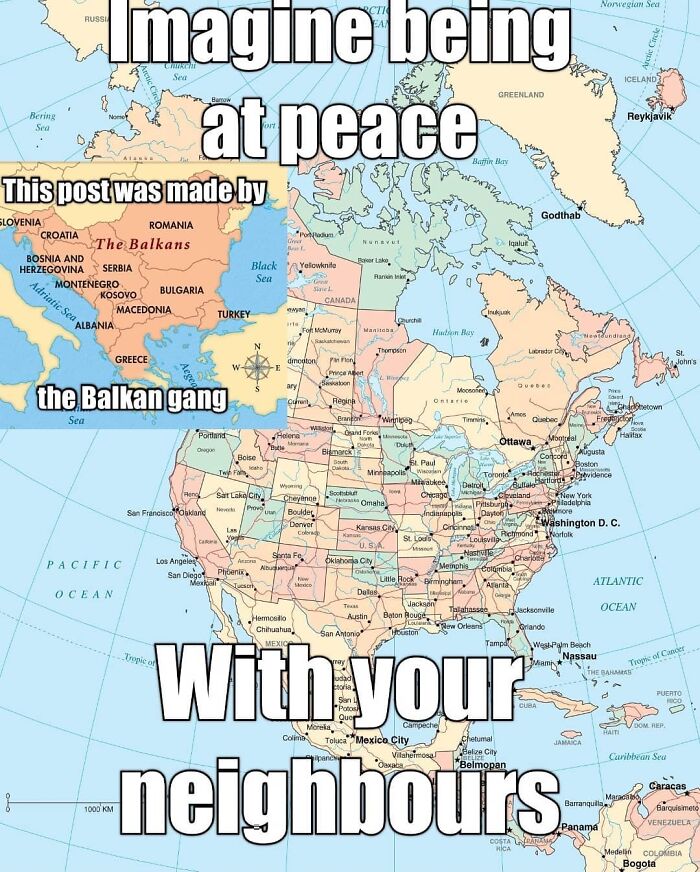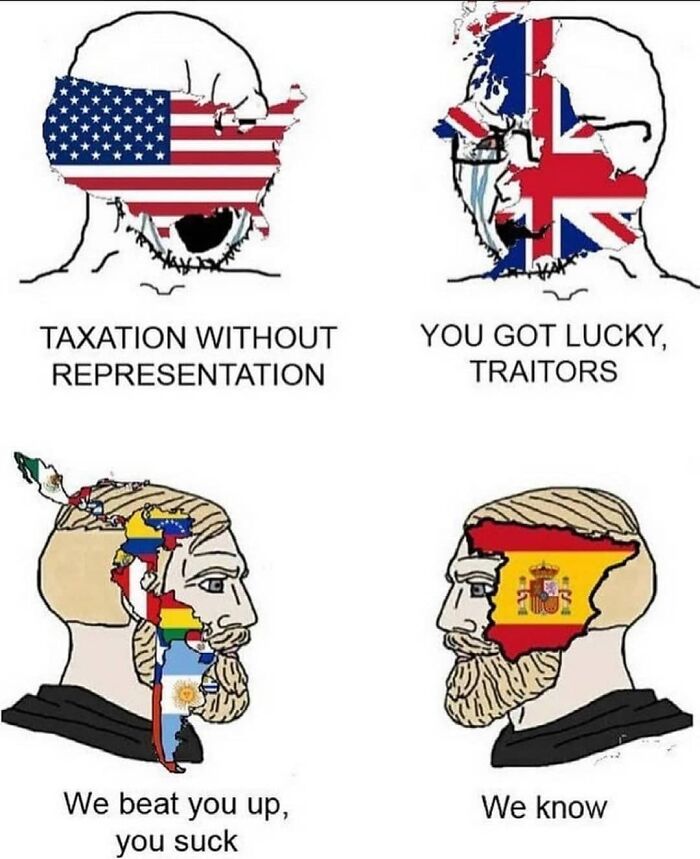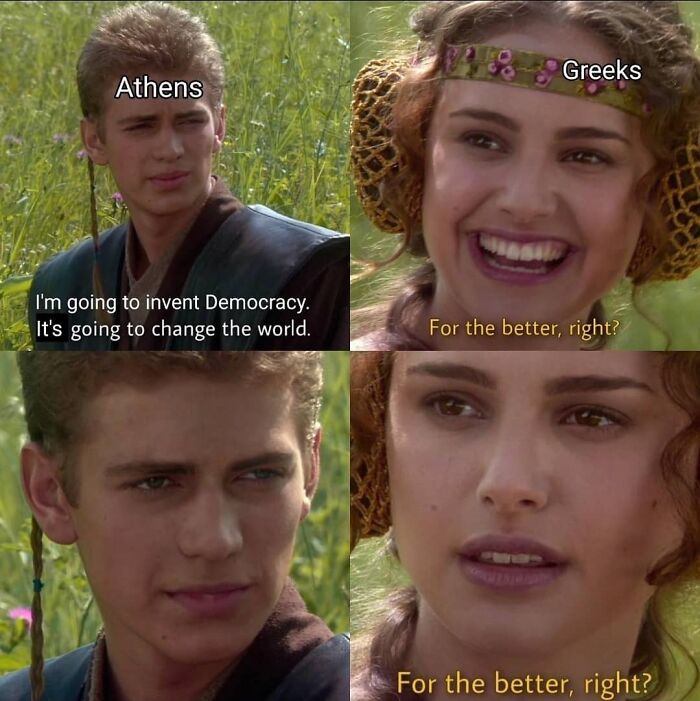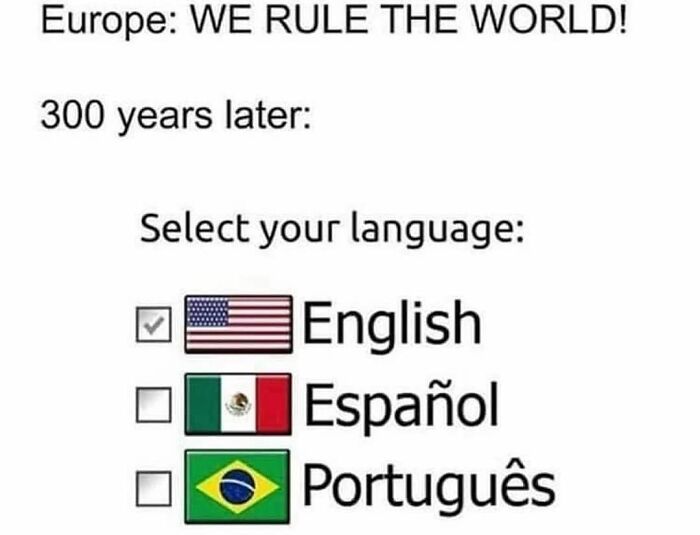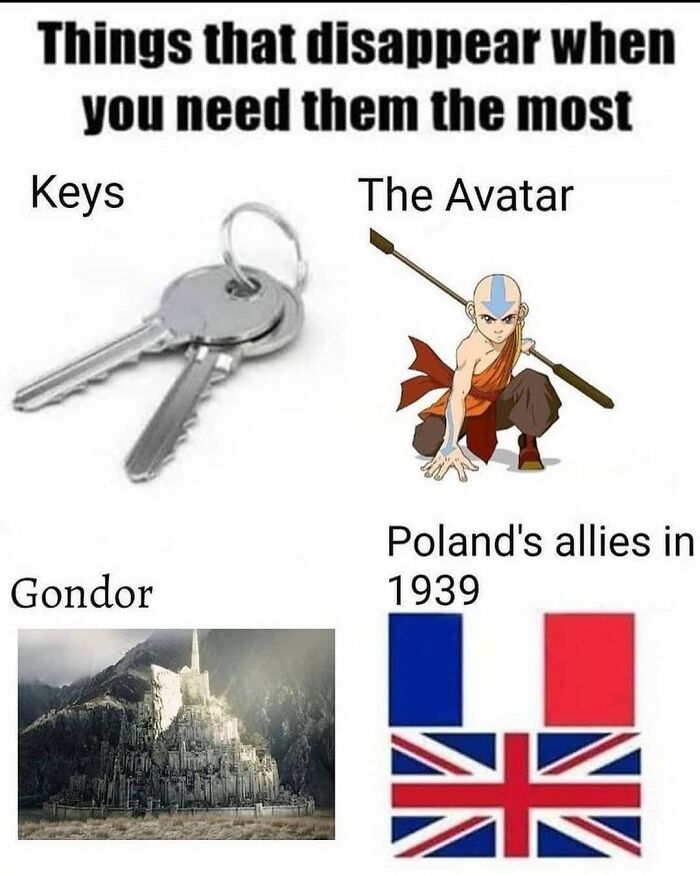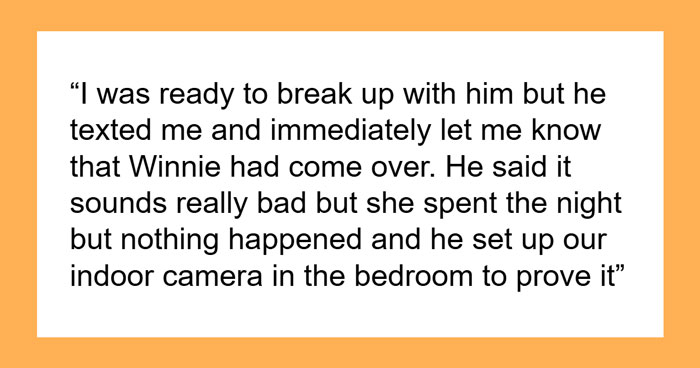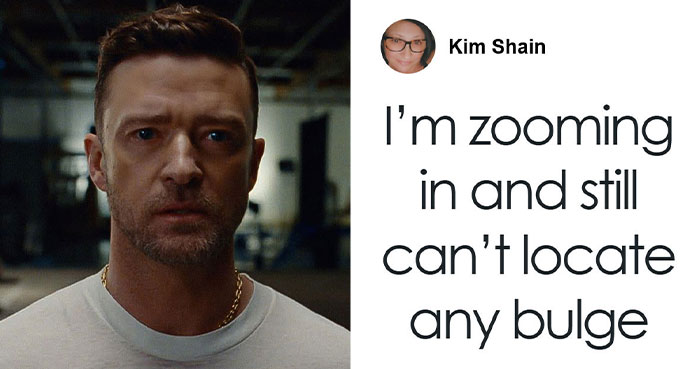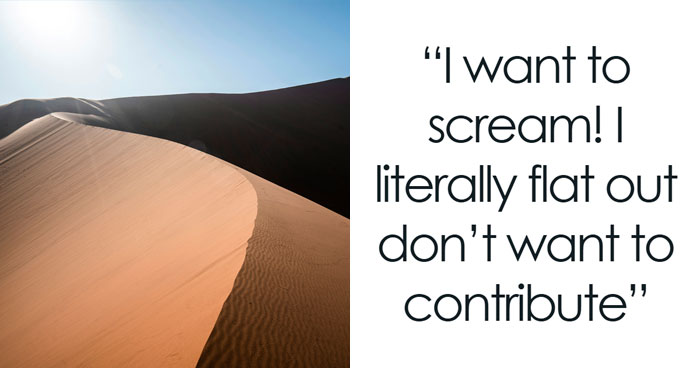Whether you’ve been a fan of history ever since you were a kid or you’re just starting to delve deeper into the ins and outs of certain periods, you probably know how fascinating the subject can get. If you’re not into history at all—you might want to call someone who is right about now as the thing we’re delving deeper into today is history memes.
Shared by an Instagram account titled exactly that, the history-based humor has amassed over 40 thousand followers already, eagerly waiting for new posts to get those cogs turning. If you think such content is likely to be something you enjoy, too, scroll down to find some of the best examples from ‘History Memes’, and make sure to share them with a fellow history enthusiast.
Bored Panda turned to two history enthusiasts, Assistant Professor of History at the Department of History, Philosophy, and Geography at Columbus State University, Dr. Laura June Davis, and Assistant Professor of History at Loyola Marymount University, Dr. Ali A. Olomi to discuss what role memes and humor play when it comes to the subject of history. You will find both their thoughts in the text below.
This post may include affiliate links.
Even I could make it in that amount of time (I think).
Started just a few years ago, in June of 2020, ‘History Memes’ already have over 40.1k followers and more than 2000 posts accumulated. Their content covers all sorts of happenings and periods, providing a hearty laugh for anyone at all interested in past events and showing that history is far from dull, no matter what some people might say.
“History-based humor is a fantastic teaching tool and effective means of conveying historical information in an easily digestible format,” Assistant Professor of History at Loyola Marymount University, Ali A. Olomi, told Bored Panda in a recent interview.
“History is a complex topic, but full of rich and interesting stories with plenty of opportunities to find humor in. History memes are some of the earliest memes we have on the internet and remain incredibly popular. Sharing history through a sense of play can be fun and instructive,” he added.
His opener, as recorded by reporters, was “I don’t know whether you fully understand that I have just been shot.....Fortunately I had my manuscript, so you see I was going to make a long speech, and there is a bullet—this is where the bullet went through—and it probably saved me from it going into my heart. The bullet is in me now, so I cannot make a very long speech, but I will try my best.”
Assistant Professor of History at Columbus State University, Dr. Laura June Davis, seconded the idea that history-based humor is a great way to engage students in past events. “It grabs their attention, makes what we are learning more memorable, and can make people, events, and ideas of the past seem more relatable to the present.”
She also suggested that—with or without the help of humor—having historical knowledge is essential. “At its core, history is often about human stories—who we are and where we come from. It contextualizes the ever-changing and often chaotic present by allowing us to understand change over time, cause and effect, and contingency. By studying history, we can better understand how and why we got to a specific moment in time.”
The fact that the US still allows people to sign up to fight a war before it allows them to purchase beer is mind boggling
What about Darth Vader? He had to go nearly his whole life with a full body suit including mask! Poor guy!
When discussing how historical knowledge helps comprehend happenings today, Asst. Prof. Ali A. Olomi told Bored Panda what he always tells his students: “History is a way of understanding the world around through studying how we got to this moment.”
“If you want to understand our world, its messiness, its politics, its frames of reference, then study history. Everything has a history, and everything is shaped by historical forces. Even humor and memes have a history.
“Someday, years from now, some historians will study our memes, our humor, and the things we put out on social media just as we study the sources of the past and that is an exciting thought,” he added.
The sewer worker got a reward for the discovery. He had had ample opportunity to steal from the vault, but had decided to let the bank directors know of the problem instead.
According to Asst. Prof. Laura June Davis, social media and the online world in general can help get more people interested in history. “When used for educational purposes, social media can be a great way to engage audiences with history. There are informative accounts from various libraries, archives, professional organizations, and historical sites that share fun facts, artifacts from their collections, and other fun tidbits of historical knowledge.
“Some share newspaper articles, diary excerpts, or primary sources so you can gain a deeper understanding of the past. Other accounts have recounted past events in ‘real time’ to commemorate a centennial or sesquicentennial anniversary.
“Many great history podcasts use social media to promote their episodes,” she added. “All of these efforts work together to make history more accessible and appealing for general audiences.”
Oooh, love me some Ancient Aliens lol. Giorgio Tsoukalos' coiffure is a wonder to behold all on its own.
Asst. Prof. Davis revealed to Bored Panda that she herself sometimes uses history-based memes as a means of teaching the subject. “I have used history memes as an extra credit assignment in my classes. My students create memes based on a person, event, or concept that they have learned in class that week.
“Students love this assignment because they get to have fun, be creative, and make humorous memes. What they don't realize is that to create that meme they have had to review their notes, synthesize historical information, and then recreate it, this way engaging in higher-level thinking skills.
“I often share the memes with the rest of the class to serve as an informal review of the previous week's content and an opportunity to have a good laugh before class formally begins,” she shared.
Quite right. I'm glad someone is out there manning the barricades and standing up for workers' rights!
I'm not a genius but I'm pretty sure you can't just move a boarder. Like a property line, it is still there even if not seen.
Mr. Olomi agreed that social media can work to the historian’s advantage, as that’s where they often share their research and classes. “Social media has created a global community where people from different backgrounds who were often siloed off in their respective social circles can now interact, communicate, and share with one another.
“We may be living in one of the most exciting time periods when it comes to history-learning; the amount of fantastic information that is available on Twitter, TikTok, or YouTube is unprecedented. It also is an opportunity to encounter histories we don't always hear about; the stories and lives that have been swept under the rug or forgotten over time,” he added.
Amazing what you can do with a horse and a sword, isn't it. I've always wondered, is that how polo was invented?
Henry I, II, III, IV, V, VI, VII, VIII. Elizabeth I, II. Victoria. What do we win?
Ali A. Olomi shared with Bored Panda that the thing that fascinates him the most about history is the stories and lives we encounter who may be centuries apart from us living today, but who share our fears, hopes, and dreams. “We study history and discover that while the years may separate us, there is so much that links us together. If you never want to feel alone again, study history; whatever you are feeling or have experienced, someone has gone through it before.”
As a UK citizen, I can confirm this in nonsense! We were taught about the wonderful British Empire - a movement that brought peace and order to the globe.
Ohhh you Brits! You are so funny. I just love your humor. Talking absolute s**t with a straight face. Hilarious
Load More Replies...The way it was for me was maybe one week about prehistory plus Mesopotamia and Egypt, and then forever on Greece and Rome. And then we're off to Western Europe for the Middle Ages, Renaissance, Industrial Revolution, a brief mention of WW1, an obsession with WW2, 20 minutes on the entirety of the 60s and then oops we ran out of time. I'm pretty sure there was more coverage specifically of Martin Luther or Eli Whitney than there was all of the rest of Africa, South America, Australia, and anything in Asia that wasn't a 10-minute survey of Hinduism or Chinese architecture.
Load More Replies...In South Africa, even in the '70s, we learned about southern African history. About the original inhabitants of this area (the San), the various tribes, Shaka, then only the European explorers and their effect on the continent, the World Wars, etc.
Hmm. I learned the most about South America and Africa in my college history class. The textbook and teacher were pretty blunt about how f’d up things got on both continents due to other countries interfering. Not sure this history would have done well in grade school, but it could have been at least started on in high school. Mind you I had to learn about Vietnam and Korean wars on my own because my 11th grade teacher spent the entire semester on WWII.
Nah, that's too optimistic. In Europe, it's mostly the west and in Asia, the east and some of the south
Yeah, was thinking Asia looks bigger and less than a Japan shaped island here than I remember from history class… :p
Load More Replies...thankfully, this is starting to change! I'm taking world history in school right now, and we are studying those places! (I'm from the US)
Hang on now, that's not true! We learned about Africa when it was colonized by European nations! And a tiny bit about ancient Egypt, like the mummies and stuff. Nothing else, but surely those are the only important bits anyway /s
Took "world history" in high school. Note the parantheis. Teach focused more on US history and black history month than what Napoleon did, or the Roman empire.
I'm actually trying to change this as much as possible for my high school student.
As an american my school teaches about south america and all the f****d up s**t that europeans did in australia and about the apartheid in south africa and the atlantic slave trade and the east indian company and many more. So no.
Now, yes, but everyone before you learned about Europe, Asia, and North America
Load More Replies...No, we also learned about "HOLY CRUD OIL!!!" and/or "FREEDUMB!!!!" locations.
History is written recordings, therefore areas of the world that don’t have a written language theoretically don’t have a ‘history’. History starts when there is someone to write it down, even though most cultures had a strong verbal culture.
As an American (South Carolina), I read about the Conquistadors (central and South America), and about at least some of the cultures and nations in Northern Africa.
as a US citizen disgusted with our news - I watch BBC America to find out what happens outside of the US... otherwise we would have ZERO info on typhoons, heat waves, Antarctica melting, the Artic issues, Greenland, almost anything in Africa and the ONLY news we have about South America is the thousands of people trying to get into the US (go back home..we have seriously run out of room for our own people and winter is coming... )
We learned about Canadian history and European history. Not Asia, though. Unless it had to do with a war. And ancient Egypt.
Absolutely accurate for US public high schools in the 1980s. And you sometimes didn't hear anything about Asia before WWII.
Anyone else annoyed that North Africa is cut out? US's World History is the History of the Enlightenment from the British perspective. Italy disappears from our history books after the Age of Exploration and doesn't show up again until WW2. As for the Polish-Lithuanian Confederation, the largest European empire of its time, I doubt 1% of Americans ever heard of it. The Revolutions of 1848 which swept the entire European continent?
In one of my schools (Germany) we talked about Australia and India in my English class. And we talked about South America in another school. That was in actual History class. There was mention about Apartheid in Africa, but I think that was part of a lesson about the way black people were / are treated in general.
We weren’t even taught about American history and the only Europian history we had was about the dark ages
You guys love to hate on Americans, but I've seen just as many "man on the street interviews" in places like the UK and Australia where there are just as many dumba55es who don't know geography either. It's all manipulated depending on who produced it.
Load More Replies...For those who don't know. Napoleon lost much of his Grande Armee (great army) due to cold weather in Russia, winter of 1812-1813.
If history-based content is something you enjoy, Bored Panda has you covered, as here you can find heaps of interesting historical material. Just to give you a few examples: we have compiled a list of incredible moments that were caught on camera decades ago, shed light on events in history that are extremely hard to believe, but without a doubt actually happened, covered bits of history that people are shocked to learn happened simultaneously, and shared facts that history and trivia lovers might find interesting. Continue reading one of these pieces by our writers or delve even deeper into Bored Panda to find more.
Ah, so the Soviets were actually playing the long game all along by getting us Americans addicted to cheap quality fried chicken in order to make us too fat to fight (as the army has weight restrictions)! From the bottom of my Family Fill-up, all I can truly say is that they just need to bring back the potato wedges and we'll be defeated for sure (seriously, why did they did they take them off the menu and replace them with fries?)
Finland is the quiet next door neighbour who never gives you any trouble but if you upset them they might just kick the s**t out of you. I think Russia are starting to realise that with Ukraine......
Shudders in German. Shudders even more in Chinese from 1966 to 1968.
Classic example of how to create hyper-inflation. The more $$$ you print the less money is worth. Germany tried this to pay off debt from WWI. Printed money to pay debt. Money had practically no value. Imagine a $2 loaf of bread costing $100 but you aren't getting paid any more.
They didn't make them for long. Ferdinand forgot to provide them with anything like a machine gun for defence, so they were easy prey for enemy infantry and light armour.
The Swiss will always remain neutral so long as they can see a way of profiting from it.
Piccolomini (later known as the Pope Pius II) also depicted the Empress Barbara of Cilli as promiscuous lesbian vampire, just because of her early emacipation. Not a trustworthy source at all...
So there's actually a reason for this. To french is a way of cutting vegetables into strips before. So when they say french fries they actually meant frenched fries.
And it turned out so well, especially after France occupied the Ruhr area as compensation...
The story is tragic. Apollo was originally designed to use pure oxygen at quite low pressure. Big weight saving, and safe. They tested Apollo 1 with pure oxygen at atmospheric ambient pressure. Dead crew due to unstoppable fire. BIG mistake.
But wasn’t there a university in Bihar that held entrance exams until it was destroyed in 12th century AD?
Do you remember when Trump told Denmark he wanted to buy Greenland? 🤣 Then got the hump when they said no 🤣🤣
Surely not with all these wonderfully 'accurate' historial memes to go by???!!!!! /s Good luck anyway!
Load More Replies...I disagree. If you know virutally nothing about history, they aren't funny. If you know a decent amount, they're funny. If you know a lot, they're not funny.
Load More Replies...Surely not with all these wonderfully 'accurate' historial memes to go by???!!!!! /s Good luck anyway!
Load More Replies...I disagree. If you know virutally nothing about history, they aren't funny. If you know a decent amount, they're funny. If you know a lot, they're not funny.
Load More Replies...
 Dark Mode
Dark Mode 

 No fees, cancel anytime
No fees, cancel anytime 


